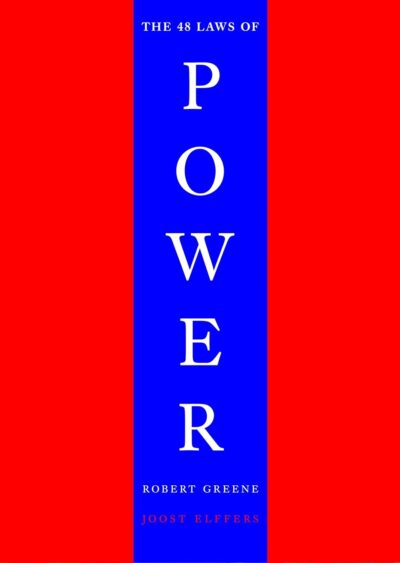87 Results with the "Non-fiction" genre
Adventure Fiction (1164)
Biography (435)
Business & Finance (1)
Children's Literature (124)
Comics (6)
Culture (51)
Drama (123)
Dystopian (29)
Fable (86)
Fantasy (1132)
Fantasy (203)
Fiction (1010)
Finance (1)
Gothic Fiction (12)
Historical Fiction (615)
History (122)
Horror (56)
Lifestyle (36)
Literary (404)
Literary Fiction (207)
Memoir (113)
Mystery (422)
Novel (549)
Paranormal Fiction (96)
Philosophical (182)
Philosophy (45)
Poetry (249)
Political Fiction (14)
Politics (42)
Practical (32)
Psychological (4)
Psychological Thriller (108)
Relationship (6)
Romance Novel (716)
Romantic Melodrama (14)
Satire (91)
Science (46)
Science Fiction (345)
Self-help (68)
Society (65)
Society (2)
Spiritual Growth (1)
story (2)
Thriller (704)
True Crime (56)
view (11)
Women's Fiction (2)
Young Adult (233)
-
Chapter
Acknowledgments
 The acknowledgments section begins with the author expressing a deep sense of gratitude, struggling to find the right words to convey appreciation for the many individuals who played a role in bringing the book to life. Writing is often seen as a solitary endeavor, but the author emphasizes that this project would not have been possible without the unwavering support, collaboration, and encouragement of a dedicated team of friends, industry professionals, and loved ones. From the earliest stages of…
The acknowledgments section begins with the author expressing a deep sense of gratitude, struggling to find the right words to convey appreciation for the many individuals who played a role in bringing the book to life. Writing is often seen as a solitary endeavor, but the author emphasizes that this project would not have been possible without the unwavering support, collaboration, and encouragement of a dedicated team of friends, industry professionals, and loved ones. From the earliest stages of…-
212.9 K • Ongoing
-
-
 Effortlessness is a key concept in Law 30 of The 48 Laws of Power, which emphasizes the importance of making one's achievements appear effortless, a strategy that enhances perception and influence. The principle behind this law is to maintain an aura of natural ability, suggesting that success comes with ease, even if the reality involves significant effort and meticulous planning. Greene suggests that this tactic not only elevates one's status but also positions the individual as a person of remarkable…
Effortlessness is a key concept in Law 30 of The 48 Laws of Power, which emphasizes the importance of making one's achievements appear effortless, a strategy that enhances perception and influence. The principle behind this law is to maintain an aura of natural ability, suggesting that success comes with ease, even if the reality involves significant effort and meticulous planning. Greene suggests that this tactic not only elevates one's status but also positions the individual as a person of remarkable…-
215.9 K • Ongoing
-
-
 Chapter 22: “Be Hungry for It! Be Angry!” focuses on the transformation of a football team during the preseason, highlighting their growth and determination to improve after a disappointing championship loss. Under the leadership of strength coach Galvin Drake, the players showed significant physical progress, with a collective strength increase of forty pounds. This transformation reflects their renewed focus and maturity, as they dedicated themselves to becoming a stronger and more competitive team.…
Chapter 22: “Be Hungry for It! Be Angry!” focuses on the transformation of a football team during the preseason, highlighting their growth and determination to improve after a disappointing championship loss. Under the leadership of strength coach Galvin Drake, the players showed significant physical progress, with a collective strength increase of forty pounds. This transformation reflects their renewed focus and maturity, as they dedicated themselves to becoming a stronger and more competitive team.…-
169.0 K • Ongoing
-
-
 Law 7 of The 48 Laws of Power highlights the importance of leveraging the work, knowledge, and talents of others while ensuring that credit remains firmly in one’s own hands. Throughout history, those who mastered the art of delegation and recognition management have reaped the benefits of innovation and progress without expending unnecessary effort. By controlling the perception of success, individuals can build powerful reputations while utilizing the skills of others to further their ambitions. A…
Law 7 of The 48 Laws of Power highlights the importance of leveraging the work, knowledge, and talents of others while ensuring that credit remains firmly in one’s own hands. Throughout history, those who mastered the art of delegation and recognition management have reaped the benefits of innovation and progress without expending unnecessary effort. By controlling the perception of success, individuals can build powerful reputations while utilizing the skills of others to further their ambitions. A…-
215.9 K • Ongoing
-
-
 Law 41 of The 48 Laws of Power advises individuals on the perils of being a successor to a great leader and the necessity of forging a unique identity to escape the shadow of their predecessor. History has shown that those who merely follow in the footsteps of an accomplished predecessor often find themselves compared unfavorably, unable to command the same level of respect and influence. To truly surpass a great figure, a successor must not only match but exceed their achievements, an endeavor that…
Law 41 of The 48 Laws of Power advises individuals on the perils of being a successor to a great leader and the necessity of forging a unique identity to escape the shadow of their predecessor. History has shown that those who merely follow in the footsteps of an accomplished predecessor often find themselves compared unfavorably, unable to command the same level of respect and influence. To truly surpass a great figure, a successor must not only match but exceed their achievements, an endeavor that…-
215.9 K • Ongoing
-
-
Chapter
Chapter 33: The Throw
 Chapter 33: The Throw highlights a crucial turning point during a tense football game that pushed the Cubs to their limits, demanding resilience and quick thinking. It was a chilly evening, with the temperature hovering around fifty degrees, as Coach Davidson removed his blue Faith Baptist varsity jacket, preparing for what would become an intense battle on the field. The Cubs were midway through the first quarter and, despite facing a tough start, were determined to make a comeback. Their third drive of…
Chapter 33: The Throw highlights a crucial turning point during a tense football game that pushed the Cubs to their limits, demanding resilience and quick thinking. It was a chilly evening, with the temperature hovering around fifty degrees, as Coach Davidson removed his blue Faith Baptist varsity jacket, preparing for what would become an intense battle on the field. The Cubs were midway through the first quarter and, despite facing a tough start, were determined to make a comeback. Their third drive of…-
169.0 K • Ongoing
-
-
 Law 19 of The 48 Laws of Power underscores the crucial need to assess the personalities and temperaments of those you interact with before making strategic moves. Misjudging someone's nature can lead to unexpected consequences, whether through retaliation, resistance, or outright sabotage. Power is not just about exerting influence but also about knowing when to exercise caution and avoid unnecessary conflicts that could jeopardize one’s position. One of the most striking historical examples of this…
Law 19 of The 48 Laws of Power underscores the crucial need to assess the personalities and temperaments of those you interact with before making strategic moves. Misjudging someone's nature can lead to unexpected consequences, whether through retaliation, resistance, or outright sabotage. Power is not just about exerting influence but also about knowing when to exercise caution and avoid unnecessary conflicts that could jeopardize one’s position. One of the most striking historical examples of this…-
215.9 K • Ongoing
-
-
Chapter
Chapter 12: Fame
 Chapter 12: Fame tells the inspiring journey of the California School for the Deaf, Riverside (CSDR) Cubs football team, whose extraordinary season brought them recognition beyond the deaf community. Their winning streak, which extended well into October, was not just a series of victories but a momentous achievement for deaf athletes everywhere. The Cubs' success was a symbol of resilience, proving that communication barriers did not limit their potential. Their unwavering determination resonated deeply…
Chapter 12: Fame tells the inspiring journey of the California School for the Deaf, Riverside (CSDR) Cubs football team, whose extraordinary season brought them recognition beyond the deaf community. Their winning streak, which extended well into October, was not just a series of victories but a momentous achievement for deaf athletes everywhere. The Cubs' success was a symbol of resilience, proving that communication barriers did not limit their potential. Their unwavering determination resonated deeply…-
169.0 K • Ongoing
-
-
Chapter
ACKNOWLEDGMENTS
 The acknowledgments section of this book serves as a deeply personal tribute to the many individuals who played an essential role in its creation, refinement, and eventual publication. At the forefront, the author expresses profound gratitude to Rachel Klayman, a longtime editor at Crown, whose meticulous attention to detail and thoughtful editorial guidance have been invaluable over the past sixteen years. Her ability to shape and refine the manuscript, ensuring clarity, coherence, and depth, has left an…
The acknowledgments section of this book serves as a deeply personal tribute to the many individuals who played an essential role in its creation, refinement, and eventual publication. At the forefront, the author expresses profound gratitude to Rachel Klayman, a longtime editor at Crown, whose meticulous attention to detail and thoughtful editorial guidance have been invaluable over the past sixteen years. Her ability to shape and refine the manuscript, ensuring clarity, coherence, and depth, has left an…-
192.4 K • Ongoing
-
-
 Law 31 from The 48 Laws of Power revolves around the concept of controlling options to influence others' decisions while making them believe they are acting independently. The key to this strategy is not to impose direct control but to present people with choices that all lead to outcomes that benefit you. By doing this, one creates an illusion of freedom, allowing others to feel empowered while subtly guiding them toward decisions that serve your interests, akin to a puppeteer pulling the strings without…
Law 31 from The 48 Laws of Power revolves around the concept of controlling options to influence others' decisions while making them believe they are acting independently. The key to this strategy is not to impose direct control but to present people with choices that all lead to outcomes that benefit you. By doing this, one creates an illusion of freedom, allowing others to feel empowered while subtly guiding them toward decisions that serve your interests, akin to a puppeteer pulling the strings without…-
215.9 K • Ongoing
-
- 1 2 … 9 Next
